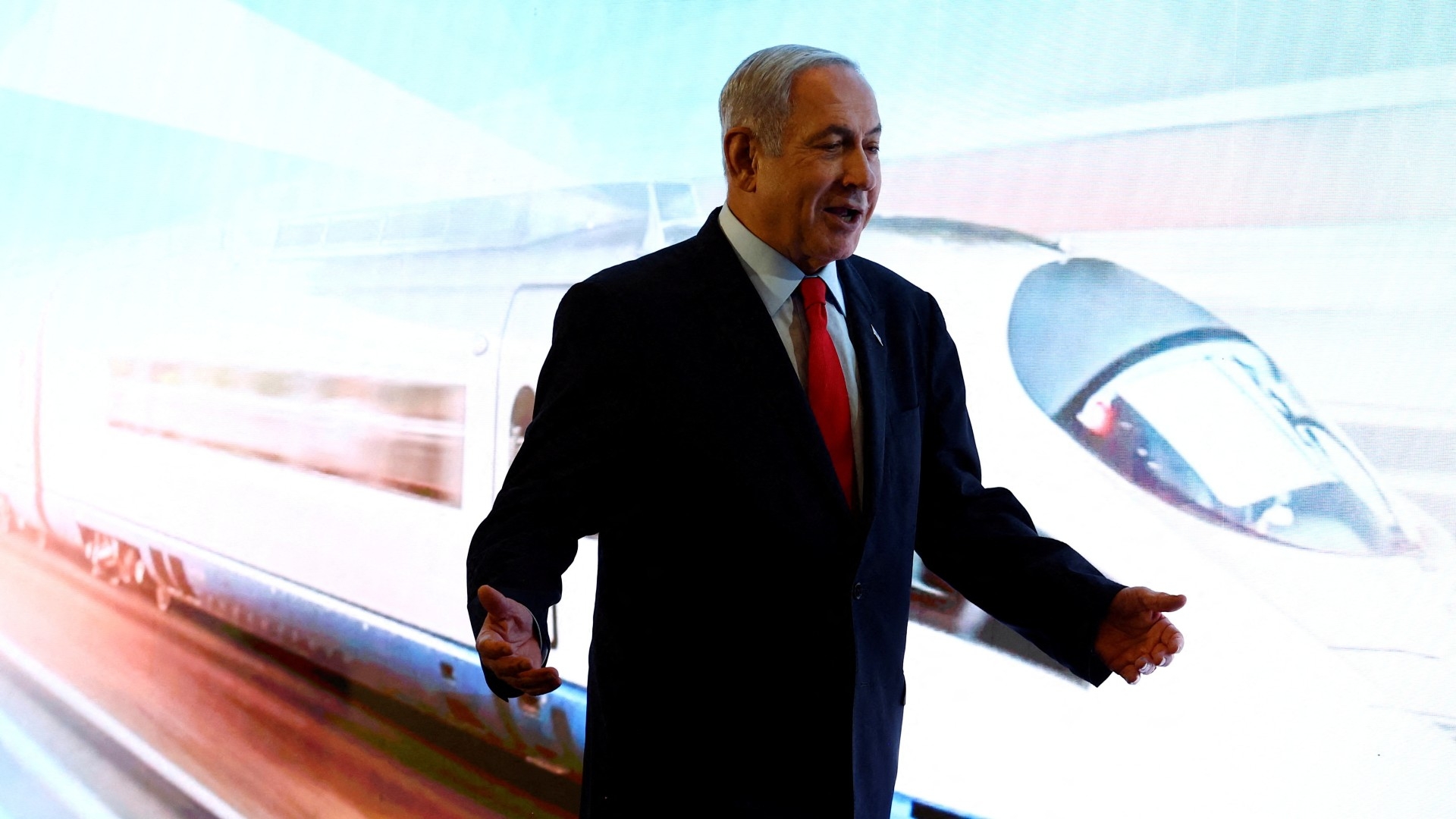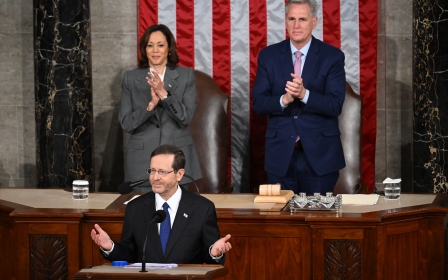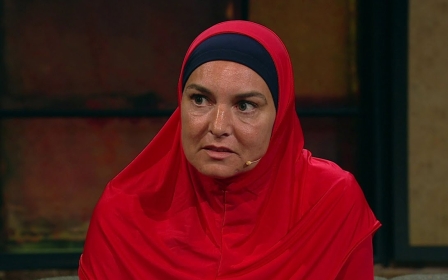Israel plans rail expansion that could link to Saudi Arabia

Israel will build a rail expansion connecting outlying towns and cities to Tel Aviv, and potentially linking the country to Saudi Arabia, Prime Minister Benjamin Netanyahu has announced.
Netanyahu said on Sunday that the One Israel Project would be designed to reduce the time it takes to reach government and business centres of the country to less than two hours.
"I would like to add that in the future we will also be able to transport cargo by rail from Eilat to our Mediterranean, and will also be able to link Israel by train to Saudi Arabia and the Arabian peninsula," he said during televised remarks.
Eilat is the country's southernmost city and a busy port at a northern point of the Red Sea.
The high-speed north-south rail link would be ready in the next 10 years, according to Israel's finance ministry.
New MEE newsletter: Jerusalem Dispatch
Sign up to get the latest insights and analysis on Israel-Palestine, alongside Turkey Unpacked and other MEE newsletters
The government approved a similar transport initiative in 2010, but little progress was made.
The announcement of the rail project, which will cost 100 billion shekels ($27bn), was made just days after US officials travelled to Saudi Arabia to advance talks to normalise relations between Israel and Riyadh.
Earlier on Sunday, a senior Israeli lawmaker said that the normalisation did not appear to be imminent.
"I think it's too early to talk about a deal being in the works," Yuli Edelstein, head of the Israeli parliament's foreign affairs and defence committee, told Israel's Army Radio.
In 2020, Israel established diplomatic relations with the United Arab Emirates, Bahrain, Morocco and Sudan as part of the so-called Abraham Accords brokered by then US President Donald Trump.
Palestinians have denounced the agreements, which they say violate a longstanding Arab League position that relations with Israel should only be normalised in exchange for a Palestinian state.
Riyadh has maintained it will not normalise ties until Palestinians are granted statehood.
Middle East Eye delivers independent and unrivalled coverage and analysis of the Middle East, North Africa and beyond. To learn more about republishing this content and the associated fees, please fill out this form. More about MEE can be found here.




